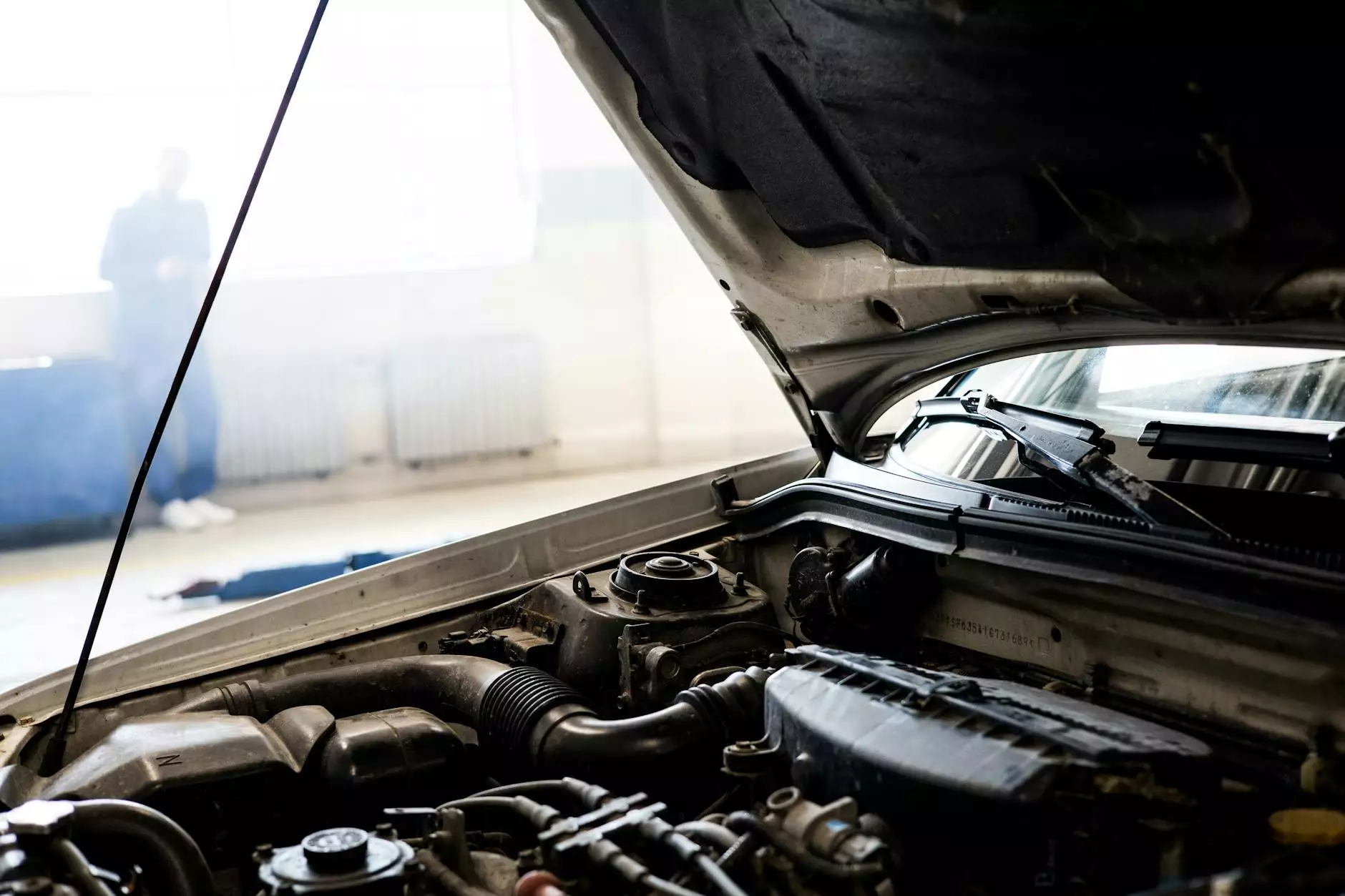Ultimate Guide to Car Sensor: Enhancing Vehicle Performance and Safety

In the rapidly evolving world of automotive technology, car sensors stand out as vital components that significantly influence vehicle efficiency, safety, and reliability. These intelligent devices continuously monitor various parameters of a vehicle's operation, transmitting critical data to onboard computers that help optimize performance and ensure safety. Whether you're a professional mechanic, an auto enthusiast, or a vehicle owner aiming for optimal performance, understanding car sensors is essential to making informed decisions about maintenance, repairs, and upgrades.
What Are Car Sensors? An Overview of Modern Automotive Sensors
Car sensors are electronic devices designed to detect specific physical or chemical conditions within or around a vehicle. They then convert this data into electrical signals that are sent to the vehicle's control units, such as the Engine Control Module (ECM). This seamless communication allows vehicles to adapt in real-time, enhancing fuel efficiency, reducing emissions, and improving safety features.
The Importance of Car Sensors in Contemporary Vehicles
- Optimized Engine Performance: Sensors provide critical data that help optimize combustion, timing, and fuel mixture for improved power and efficiency.
- Emission Control: Accurate sensor readings ensure that emission control systems operate effectively, reducing environmental impact.
- Safety Features: Sensors are integral to systems like ABS, airbags, and stability control, preventing accidents and saving lives.
- Diagnostic Capabilities: They enable early detection of issues, facilitating timely repairs and reducing downtime.
Types of Car Sensors: A Deep Dive into Essential Automotive Sensors
The diversity of car sensors reflects the complexity of modern vehicles. Below are some of the most common and critical sensors found in today's automobiles:
1. Oxygen Sensors (O2 Sensors)
Placed in the exhaust system, oxygen sensors measure the amount of oxygen in the exhaust gases. Their data helps the engine control unit (ECU) adjust the air-fuel mixture, ensuring optimal combustion, improving fuel economy, and reducing emissions.
2. Mass Air Flow Sensor (MAF Sensor)
The MAF sensor measures the amount of air entering the engine. Accurate readings are vital for calculating fuel injection rates, contributing to smooth engine operation and efficiency.
3. Throttle Position Sensor (TPS)
This sensor detects the position of the throttle pedal and butterfly valve. The data influences engine response, cruise control, and transmission shifting, ensuring a seamless driving experience.
4. Crankshaft Position Sensor
Monitoring the position and rotational speed of the crankshaft, this sensor is critical for ignition timing and fuel injection timing, directly impacting engine performance and starting reliability.
5. Camshaft Position Sensor
Similar to the crankshaft sensor but focused on the camshaft, it helps synchronize the opening and closing of valves, optimizing engine power and efficiency.
6. Coolant Temperature Sensor
This sensor monitors the engine's temperature, providing data to regulate engine cooling systems and fuel mixture adjustments, preventing overheating and ensuring smooth operation.
7. Vehicle Speed Sensor (VSS)
The VSS captures the vehicle's speed, essential for transmission shifting and speed-related safety features like ABS and traction control.
8. ABS Wheel Speed Sensors
These sensors monitor individual wheel speeds and prevent wheel lock-up during braking, maintaining steering control and safety.
9. Knock Sensors
This sensor detects engine knocking or pinging, allowing the ECU to adjust ignition timing to prevent engine damage.
10. Parking Sensors
Using ultrasonic technology, parking sensors alert drivers to obstacles, aiding in safe parking and maneuvering, especially in tight spaces.
How Car Sensors Contribute to Safety and Efficiency
Each car sensor plays a specific role that collectively enhances the vehicle's overall safety and operational efficiency. For example, oxygen sensors are vital for emission control, while ABS sensors help prevent accidents during braking. The integration of these sensors with advanced driver-assistance systems (ADAS) makes modern vehicles safer and more reliable than ever before.
The Role of Car Sensors in Emission Control and Environmental Conservation
Modern automotive car sensors contribute significantly to environmental conservation. Accurate sensing of exhaust gases by oxygen sensors ensures engines burn fuel efficiently, reducing harmful emissions like CO2, NOx, and particulate matter. Additionally, sensors like the Clean Idle Sensor optimize engine operation during idling to cut emissions further. Automakers worldwide are working towards tighter emission standards by integrating sophisticated sensor networks for cleaner transportation.
Challenges and Maintenance of Car Sensors
Over time, car sensors may encounter issues such as contamination, wiring faults, or mechanical damage which can lead to inaccurate readings or sensor failure. Regular maintenance, including cleaning and timely replacement, is crucial for maintaining sensor accuracy and vehicle performance.
Choosing the Right Car Sensor: What to Consider
- Compatibility: Ensure the sensor matches your vehicle's make, model, and year.
- Quality and Brand: Invest in reputable brands like Bosch, Denso, and ACDelco for durability and reliable performance.
- Sensor Type: Select the specific sensor you need based on your vehicle’s diagnostics or issues.
- Price and Warranty: Balance cost with warranty coverage to safeguard your investment.
Where to Purchase Top-Quality Car Sensors? Why Choose 1autoparts.com
Finding high-quality car sensors is vital to maintaining vehicle performance and avoiding costly repairs. At 1autoparts.com, we specialize in offering an extensive selection of genuine and aftermarket car sensors from trusted brands. Our commitment is to provide customers with:
- Premium quality products: All sensors are tested for durability and accuracy.
- Competitive pricing: Get the best value for your investment.
- Expert advice: Our customer service team helps you choose the right sensors for your vehicle.
- Fast shipping: Ensure quick delivery to keep your repairs on schedule.
Enhance Your Vehicle's Performance with Reliable Car Sensors
In the dynamic landscape of automotive technology, car sensors are the unsung heroes that keep your vehicle running efficiently, safely, and environmentally friendly. Regularly updating and maintaining these sensors not only improves driving experience but also prolongs the lifespan of critical engine components.
Conclusion: Embrace the Power of Smart Technology in Your Vehicle
From improving fuel economy to safeguarding passengers, car sensors are integral to modern automotive functionality. Embracing high-quality sensors and understanding their pivotal roles allow vehicle owners to make better maintenance decisions and stay ahead in vehicle care. Trust 1autoparts.com as your premier source for top-tier automotive sensors and parts, ensuring your vehicle stays in optimal condition for miles to come.
Investing in the latest sensor technology and routine maintenance is the ultimate approach to achieving superior vehicle performance, safety, and environmental responsibility. Equip your vehicle with the best in automotive sensor technology today — because your safety and operational excellence depend on it.









